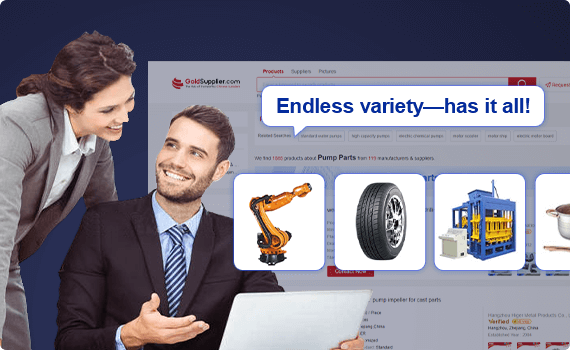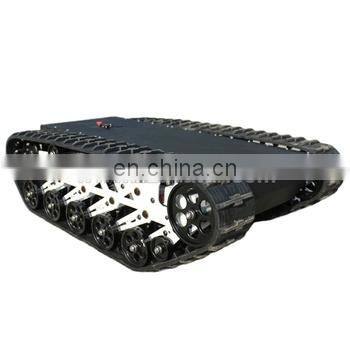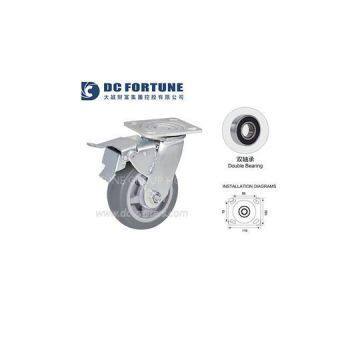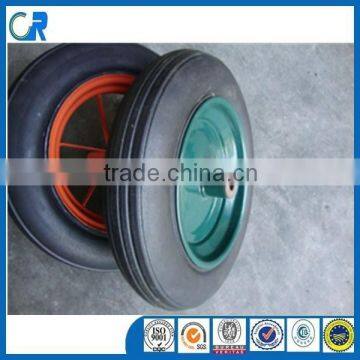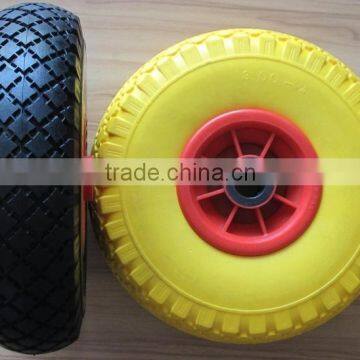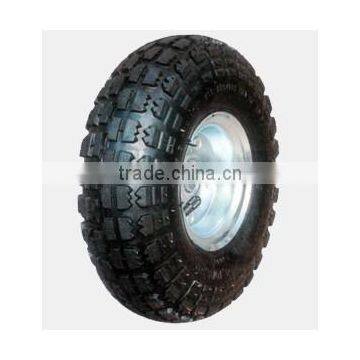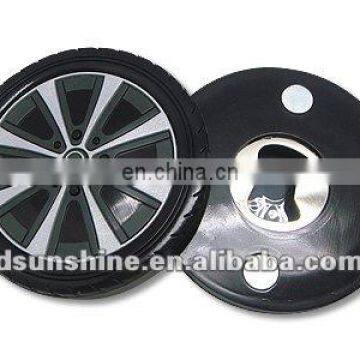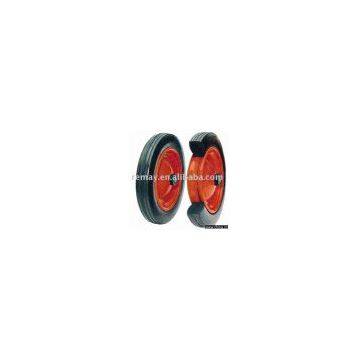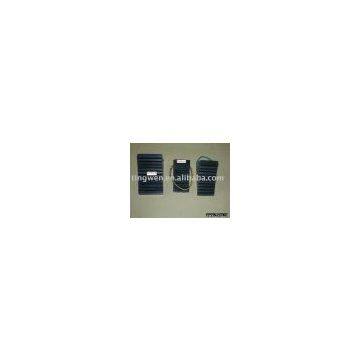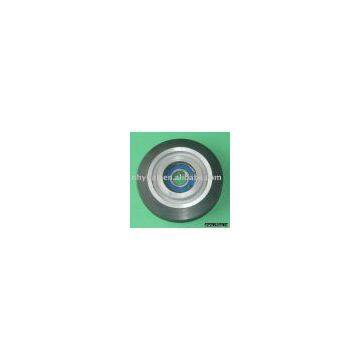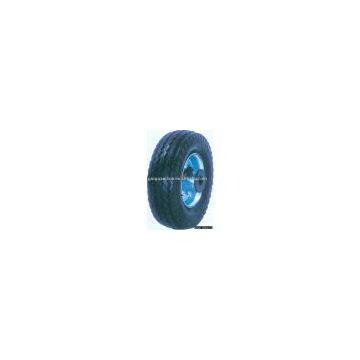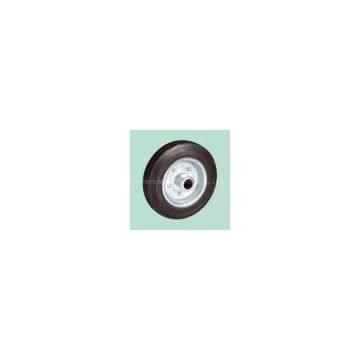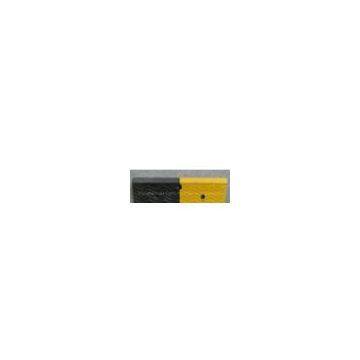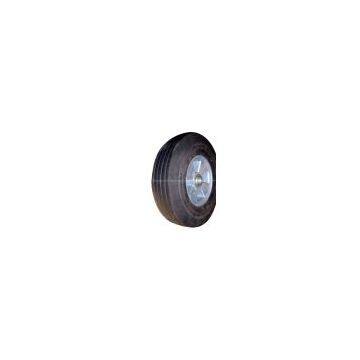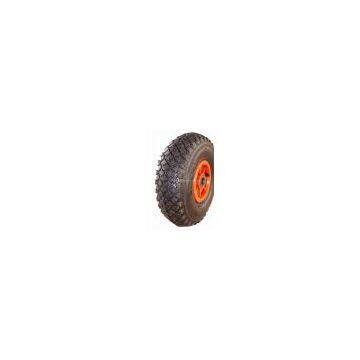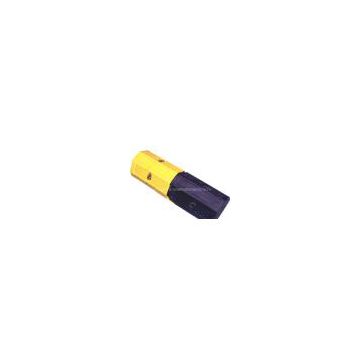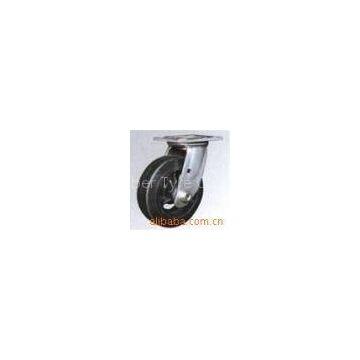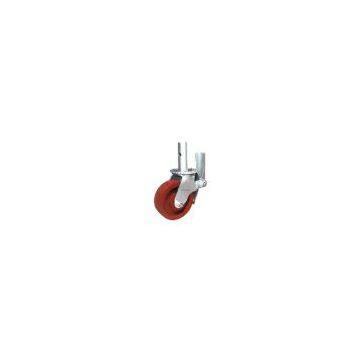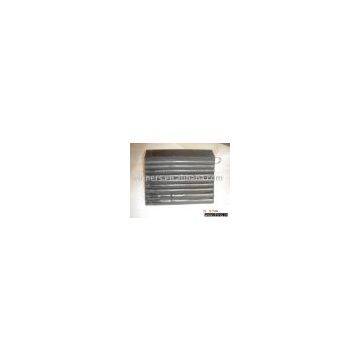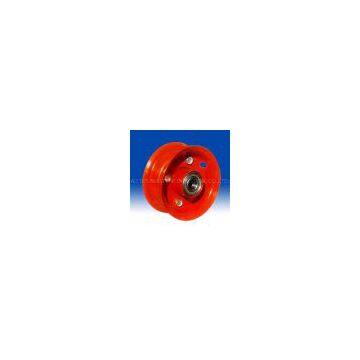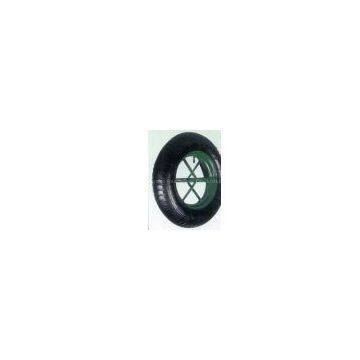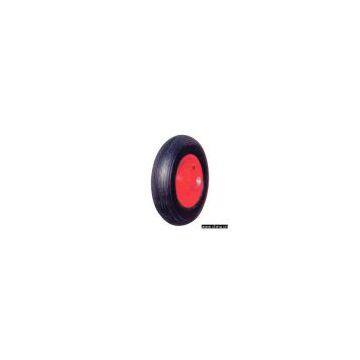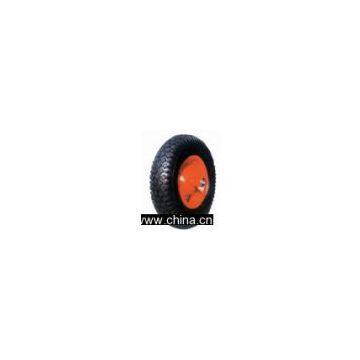rubber wheel Insights & Buyer's Guide
Rubber wheels are among the very important components in this domain of transportation and logistics, especially when it involves trucks and utility carts. These wheels are made to glide smoothly and efficiently on all sorts of surfaces. In factories or a simple office space, rubber wheels provide great utility concerning mobility and ease of usage. This guide will give you complete knowledge about rubber wheels, their usage, and the types available in the market so that you can make an informed decision in selecting the best wheel for your application.
Briefing About Rubber Wheels
What are Rubber Wheels?
Often, a rubber wheel describes a rubber tread fitted over a core or hub. This setup provides enough modulus of softness versus durability to ensure smooth operation over various floor surfaces. Rubber wheels are usually mounted on casters that allow for free rotation of the wheel, thereby increasing maneuverability. The wheels are available in many diameters and are chosen based on the specific needs of an application, whether it is for a cart, wagon, or truck. The bearing integrated into these wheels results in seamless, frictionless rotation, especially keeping in view the demand of the industry.
Importance of Rubber Wheels in Various Applications
Rubber wheels are important across various applications for shock absorption and noise reduction. In industrial setups, heavy-duty rubber wheels are used for stabilizing loads and transporting goods with ease, reducing the wear and tear of floors. In office environments, caster wheels are placed on rubber for furniture and office chairs that help in moving around without damaging the floors. Solid rubber wheels or the soft rubber type can be adjusted to suit different working environments, so that commercial and domestic rubber wheels are a dependable replacement solution.
General Overview of Different Types of Rubber Wheels
The market offers many varieties of rubber wheels, each designed for specific objectives. For example, solid rubber wheels are meant for heavy-duty applications and offer incredible performance and durability. Rubber caster wheels are commonly found in the realm of furniture and office applications-abundant with caster wheel sets of 5 or caster sets of 4. Rubber swivel casters give a good directional change with little effort. Heavy-duty plate casters are a variation for use in applications where great weight-bearing capacity is required. Understanding these variants will assist you in selecting appropriate cart replacement wheels or utility cart replacement wheels for optimal operation and longer service life.
Uses of Rubber Wheels Across Industries
Rubber Wheels with Utility Carts
Utility carts, as seen in warehouses and retail, depend heavily on rubber wheels for the smooth and efficient transportation of goods. The addition of rubber wheels to these carts decreases friction when moving over floor varieties, including concrete and tiled surfaces. These wheels are hardy enough to withstand overpowering weight, usually in the range of hundreds of pounds, without sacrificing performance. The tread pattern on these wheels helps in gaining extra friction, which is very necessary to keep the cargo from shifting while being transported. In this way, rubber-wheeled utility carts become a strategic tool in logistics and operational management, ensuring fluidity in workflows and minimizing manual labor.
Application of Rubber Wheels in Trucking
Rubber wheels in the trucking world are a guarantee for maintaining the safety and efficiency of moving the paradigms and their loads. These wheels are designed for high load-bearing capacity, giving needed support and stability to any terrain. The heavy-duty bearings in these wheels, enabling smooth and non-frictional rotation, are of paramount importance to long travels. Consideration of diameters and tread patterns of truck rubber wheels is made to optimize traction and maneuverability for better truck performance. Through the deployment of high-grade rubber wheels, this mechanical contrivance will realize better fuel efficiency, lesser wear and tear, and cost savings, all converging towards operational efficiency.
Rubber Wheels for Furniture and Office Equipment
Keeping things moving in offices, rubber wheels define convenience and mobility. The common caster wheels for office chairs come in sets of 5 and allow smooth movement on different floor surfaces while protecting floors from scratches. These wheels generally consist of soft rubber designed to absorb shocks and reduce noise, thereby providing for a comfortable working environment. Furniture rolling and chair casters also allow the repositioning of office furniture toward flexible space management. Using rubber castor wheels for office equipment keeps furniture functional and adaptable to support dynamic work environments that promote productivity.
Advantages of Rubber Wheels
Durability and Longevity of Rubber Wheels
Rubber wheels are known for their durability and longevity, factors that have, over time, put them in the category of wheels that could be used for any kind of application. The design of such wheels allows mobility under heavy loads, in the far range of hundreds of pounds. Thus, if they even get worn out after some years, it is a guarantee that they would have carried a heavy load for a substantial number of years. High-grade bearings further cement their resistance to friction and wear and provide smooth and frictionless rotation even under heavy-duty conditions. This durability ensures a longer tire life, thus ultimately limiting wheel replacement frequencies and making rubber wheels an economical choice to cater to the growing demands for continuous movement in this industry. From smooth road surfaces to harsh environments, rubber caster wheels adapt well and make a considerable contribution to overall productivity.
Performance Advantages of Rubber Wheels
Rubber wheels, from their smooth-running nature, allow transportation across any terrain. The treads of the rubber wheels have a very good grip, something that is required for maintaining stability in both industrial and office environments. This feature becomes more useful when less traction is offered by the environment in which they work, such as in utility carts or trucks transporting heavy loads. Rubber wheels also absorb shocks, which makes them perform well by reducing vibrations and providing a smoother ride. This shock absorption feature proves beneficial in cases where the shock would damage or adversely affect the equipment being moved, thereby assuring that the carrying is safely done, or rubber caster wheels are placed in an office environment, allowing for seamless mobility and ease of handling, thereby improving performance in terms of comfort.[citation needed]
Noise Reduction and Floor Protection
Noise is something that rubber wheels are not devoid of, unlike in some other industrial environments. Rubber wheels immediately absorb vibrations generated while rolling, which protects the surfaces from minor damage due to rolling actions. Hence, acoustic protection and surface protection are combined and become one reason for choosing rubber wheels in environments where maintaining sharp surfaces and a quiet ambiance is required.
Acrylic Wheel Types Available
Heavy Duty Rubber Wheels
Heavy-duty rubber wheels are not only heavy-duty in their rubber composition but are generally susceptible to carrying heavy weights and trespassing in troublesome conditions, and therefore are always necessary in any industry that demands solid performance. These wheels are made with an excellent grade of solid rubber to withstand wear and tear and heavy loads. Such wheels also take good bearings, ensuring smooth operation even under the heaviest of loads, sometimes exceeding hundreds of lbs. Such wheels find their application in industrial carts, trucks, and equipment requiring utmost reliability. The tread design of these wheels ensures greater traction, thus preventing slippage and maintaining stability on various floor surfaces. Choosing heavy-duty rubber wheels certainly helps the business increase production efficiency and save on frequent wheel replacements.
Soft Rubber Wheels vs. Hard Rubber Wheels
The choice mainly comes down to the kind of use and requirements in the environment. Soft rubber wheels are best for absorbing shocks and for quiet use. They strictly suit indoor applications, especially in offices, or on furniture. Such wheels protect the floor from scratches and other damage, providing a gentle yet durable means for mobility. Hard rubber wheels, conversely, are usually chosen for their durability and greater capacity to bear weights. They are more suited for needs in an outdoor environment where resilience and strength matter. Understanding the differences between these types of rubber wheels will help with making an appropriate choice of wheel solutions for different needs.
Swivel Rubber Caster Wheels
Swivel rubber caster wheels find application wherever higher maneuverability and flexibility are required. It is a type of caster with a full 360-degree rotation, hence changing direction and navigating with ease. Swivel caster wheels are used in applications where easy movement is required, for example, office chairs, utility carts, and furniture. The rubber constitution provides excellent grip to maintain floor/wall surface integrity and also ensures that the wheel would not create much noise while in motion. Swivel rubber caster wheels are available as a set or individually in several diameters, depending on one's needs. These wheels are ideal for an atmosphere where agility and easy handling are required. Swivel rubber caster wheels thus contribute to the ease and convenience of the user's operational life.
Frequently Asked Questions (FAQs)
What are the benefits of having rubber wheels for furniture?
Rubber wheels for furniture are excellent because the rolling is almost silent, allowing them to be used on hardwood floors and carpet. These wheels are designed with wear resistance in mind to guarantee a long lifespan, even with heavy loads. Other than that, rubber caster wheels offer superior grip, preventing slipping. For furniture that needs to move about during its operation, like an office chair and carts, having rubber wheels improves mobility. They come in all sorts of sizes, including, but not limited to, 4-inch caster wheels and wheel sets of 4.
How do I pick my cart's wheel diameter?
It is important that the correct wheel diameter is chosen to ensure good performance. The larger caster wheels, for example, the 3-inch and the 4-inch sizes, can withstand heavy loads and easily cross over obstacles. Therefore, such wheels would be suitable for platforms or dollies. Smaller wheels of 1 inch or 2 inches would, however, be better for lighter carts and for furniture that needs some degree of precision. You want to make sure that the wheels you choose can carry the weight being placed on them; if heavy-duty caster wheels are of interest, then weight capacity becomes very relevant to your cart. Also, be sure that the wheel's bearing matches your cart's axle for smooth, bearable operation.
Can the wheels on my chair be replaced?
Yes, replacing the wheels under your office chair is very easy. Almost all office chair casters have the standard stem size, which means they can be popped out, and new wheels can be put in their place. If you want to go for replacement wheels, the rubber swivel caster wheels would give a quieter glide and smoother glide feel, especially on hardwood floors. You may also want to consider heavy-duty wheels if you do need the extra durability. Take a look at your chair's specs first to make sure you pick the right size and type, such as threaded stem or push-fit styles.
What are heavy-duty rubber wheels used for?
Heavy-duty rubber wheels are meant for applications that require the greatest strength and load-bearing capabilities. Commonly used in industrial settings, such as warehouses, on platform trucks and heavy-duty furniture such as workbenches, they are capable of supporting a heavy weight without a compromise on performance. These wheels are also wear-resistant, ensuring that they would be suitable if used frequently. Whatever the case of moving heavy equipment or transporting goods, heavy-duty rubber wheels provide for both stability and ease of movement.
Are there different types of caster wheels for carts?
Yes, there are different types of caster wheels for carts suited to cater to specific needs. You can have swivel plate casters that provide maximum maneuverability and fixed casters for transportation in a straight line. Then there are heavy-duty plate casters for industrial carts and soft rubber casters for delicate floors that need protection from scratches. Some caster wheels also come with a brake to keep them stationary when needed. Always consider in your caster selection the weight capacity and the kind of surface they will be working on.
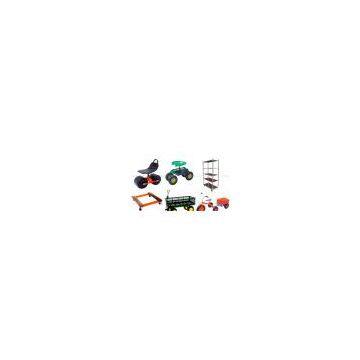 rubber wheel,handtruck,wheelbarrowNegotiableMOQ: 1 PieceQingdao huarui industrial products co.,ltd
rubber wheel,handtruck,wheelbarrowNegotiableMOQ: 1 PieceQingdao huarui industrial products co.,ltd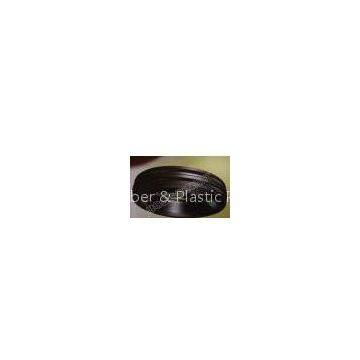 Supply Solid rubber wheelNegotiableMOQ: 10 MetersWeifang Shenglong Rubber & Plastic Products Factory
Supply Solid rubber wheelNegotiableMOQ: 10 MetersWeifang Shenglong Rubber & Plastic Products Factory
